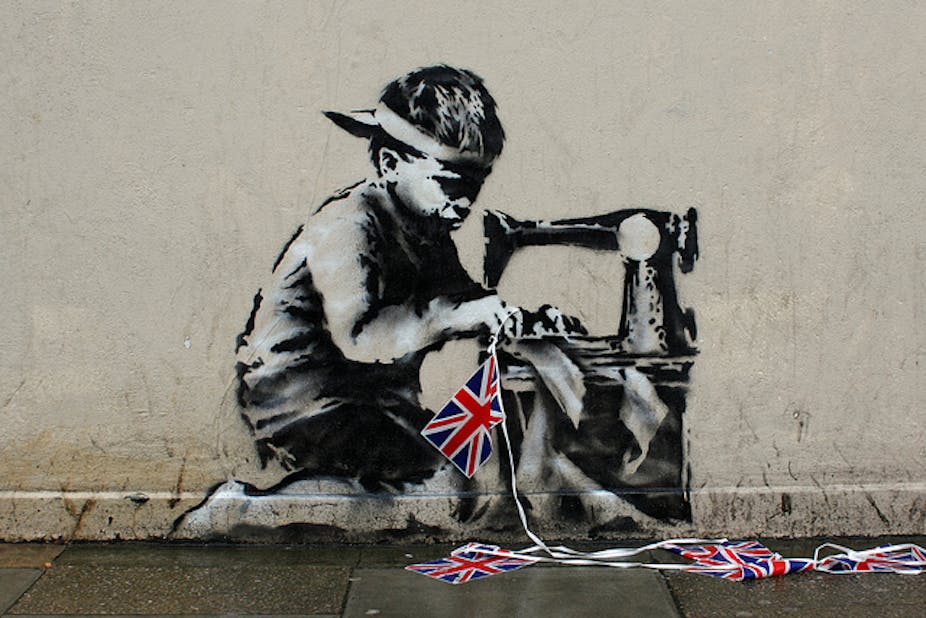A report published today by the Joseph Rowntree Foundation reveals the scope of forced labour within the UK. The study shows that millions are vulnerable to illegal exploitation in the workplace. It also reveals the current government response is not effective, judicial and public understanding of the issue is poor and that many attempts to improve the situation are being frustrated.
Understanding forced labour
Forced labour is defined by the International Labour Organisation and the European Convention on Human Rights as “all work or service that is exacted from any person under the menace of any penalty and for which the said person has not offered himself voluntarily”. While it is clear that forced labour is wrong, in practice the issue’s significance is hazy to many in the UK.
The victims of forced labour typically face physical, sexual and emotional abuse, threats and intimidation, isolation from society, restricted movement and crucially the removal of identity documents are all indicators of forced labour, according to the ILO.
Thousands of victims in the UK alone
Conservative estimates put the number of UK-based victims in the thousands, but the real number is probably much higher. An ILO survey of the worldwide prevalence of forced labour suggests a pro rata figure of about 70,000 people in the UK, with a further two million estimated to be at risk of suffering poverty and injustice because of power imbalances between employers and workers.
People illegally trafficked into the UK are commonly associated with forced labour, particularly sexual exploitation. But the report makes it clear that they are not the only victims. Legal workers can find themselves in forced labour, too. Exploitative employers are known to withhold passports, which puts legal workers in an extremely vulnerable position.
“There are no services available to undocumented people. They are not eligible for any help.” explained Mick Wilkinson, lecturer in Race and Social Justice at the University of Hull.
Breaking the rules
Reviewing the range of laws and penalties, the report found that on paper at least, the UK is tough on forced labour. Harsh penalties exist for those responsible. People traffickers face up to 14 years imprisonment, and operating as an unlicensed gangmaster bears a maximum penalty of ten years.
But evidence in the report points to a “justice gap” between the laws and their enforcement. Nicola Countouris, co-ordinator of the Labour Rights Institute at University College London, said “there is a great difficulty in tackling some forms of forced labour which, by their very nature, do not take place in the public domain and will often go undetected,” he said. “I should say, however, that this should be no excuse for government being complacent.”
The Gangmasters Licensing Authority (GLA), established in 2005, is the closest thing the UK has to a labour inspectorate, and primary watchdog for exploitation in the workforce. It is commended by the report as the only agency that systematically identifies and addresses forced labour in the UK. Its remit is limited though; it only covers the agricultural, shellfish, and food processing and packaging sectors.
The justice league
Police, trade unions and employment tribunals have all taken some action against forced labour in the UK, but with little success, according to the report. Craig outlined the limitations of these groups.
“There is limited access to employment tribunals and applicants need to cough up a substantial fee before their case is even considered,” he said.
“In any case, most of those in forced labour have no idea how the system works and are too frightened to engage with it.”
The report also found that many workers were unaware of their rights or too intimidated to pursue them, while trade unions, historically the champions of workers rights, face extreme difficulties when it comes to approaching workers in forced labour.
A call for action
The report calls for the UK government to bring forced labour onto the policy agenda and contains ten recommendations about how this could be done. One recommendation calls for the expansion of the GLA, which has only 37 investigators nationally and by next year will have suffered a 17% budget cut compared to its 2011 level.
Experts agree that downsizing the GLA is a step in the wrong direction. “Forced labour is best addressed through the joint action of robust policy, efficient administrative action, public awareness, and finally judicial action,” Countouris said. “We do not seem to have any of that and the little we had is being curtailed.”


